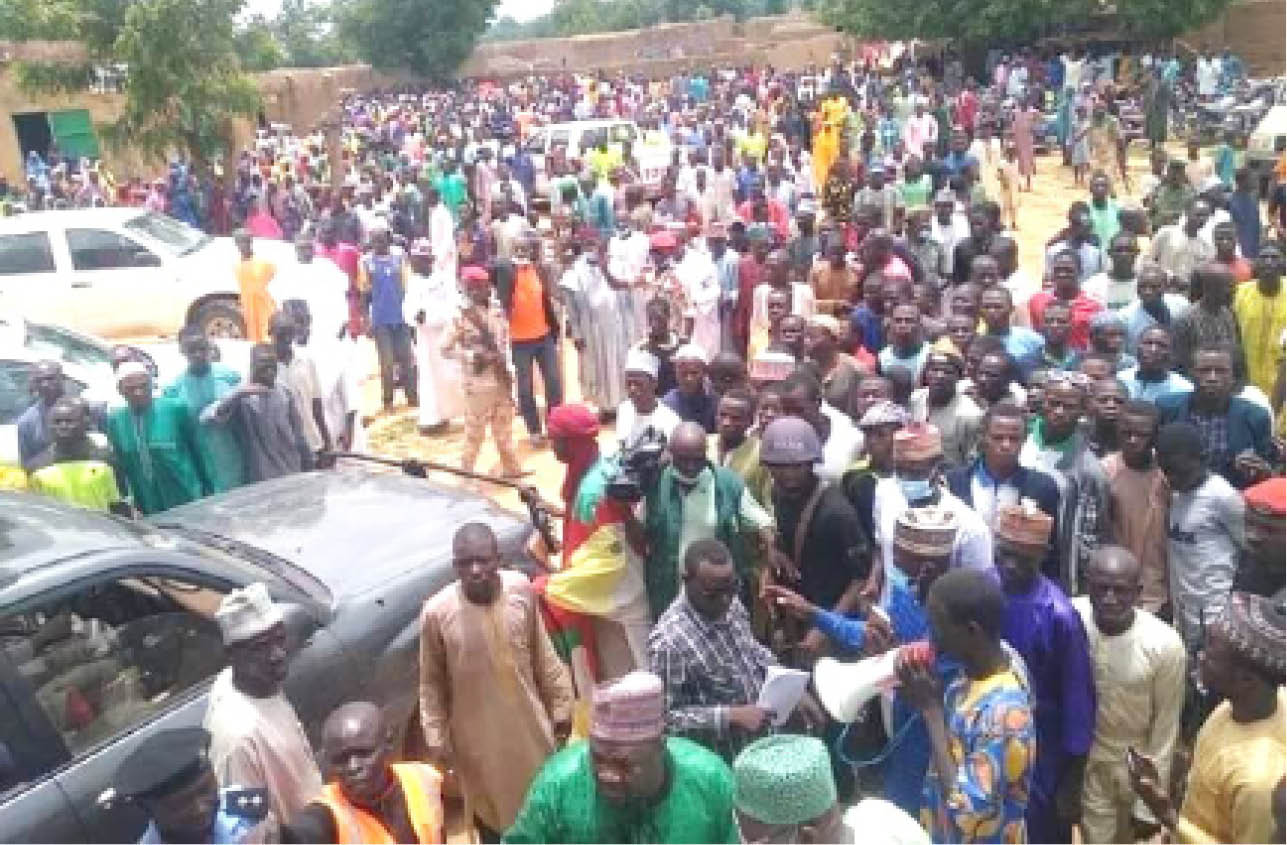Saudi Arabia to Support Displaced Persons, Refugees in Lake Chad region
In response to the acute humanitarian crisis in Nigeria, Niger, Chad, Cameroon, Burkina Faso, and Mali, the Kingdom of Saudi Arabia has announced that it will host a high-level ministerial donor conference with the support of the Organization of Islamic Cooperation (OIC) on October 26, 2024. The United Nations estimates that nearly 33 million people […]

Some of the refugees in the camp
In response to the acute humanitarian crisis in Nigeria, Niger, Chad, Cameroon, Burkina Faso, and Mali, the Kingdom of Saudi Arabia has announced that it will host a high-level ministerial donor conference with the support of the Organization of Islamic Cooperation (OIC) on October 26, 2024.
The United Nations estimates that nearly 33 million people need humanitarian assistance and protection across the region, including around 11 million people who have been internally displaced and refugees in the Sahel and Lake Chad Region.
The conference, co- hosted by the King Salman Humanitarian Aid and Relief Centre (KSrelief) and Organization of Islamic Cooperation (OIC) in cooperation with the United Nations Office for the Coordination of Humanitarian Affairs (OCHA) and the United Nations High Commissioner for Refugees (UNHCR), aims to mobilize resources and coordinate efforts to provide critical assistance to save lives, protect civilians and promote efforts to help affected people emerge from crisis.
The Sahel and Lake Chad countries have been facing a multifaceted crisis for over a decade.
- Tinubu swears in Kekere-Ekun as Acting CJN
- Tackle growing division, politics of identity, Kukah Centre tells FG
The region encounters significant challenges, resulting in ongoing social and economic instability, and disruption of livelihoods. Furthermore, the drying up of Lake Chad, a lifeline for millions, has exacerbated the humanitarian situation, necessitating urgent intervention.
The conference seeks to mobilize resources for humanitarian and development initiatives targeting the affected population, including displaced people and refugees, with a particular focus on UN-coordinated humanitarian response plans (HRPs). Other key goals include raising awareness of the multifaceted crisis and how to address it; building strong partnerships to promote an effective humanitarian response and greater support for longer-term solutions.
His Excellency Dr. Abdullah Al Rabeeah, Supervisor General of KSrelief, stated, “We recognize the importance of supporting the people of the Sahel and Lake Chad regions. This conference is a critical step towards mobilizing the necessary resources and forging partnerships to address the pressing humanitarian needs in these areas. Jointly, we can bring hope and relief to millions.”
“I am proud of our role in the implementation of the Resolution by the Council of Foreign Ministers of the Organization of Islamic Cooperation. This Donors’ Conference seeks to mobilize humanitarian assistance in support of refugees and displaced persons in the Sahel and Lake Chad regions. To that end, I am calling on OIC donor Member States, donor Institutions, and international partners to seize this opportunity and extend the necessary financial resources to help improve the conditions of vulnerable communities in these troubled regions”, said the OIC Secretary-General His Excellency Hissein Brahim Taha.
“The Sahel and Lake Chad Basin are facing an unprecedented crisis,” said Acting Under-Secretary-General for Humanitarian Affairs and Emergency Relief Coordinator Joyce Msuya. “This conference represents a critical opportunity for the international community and affected countries to come together to mobilize more resources and more support – not just for the immediate humanitarian response, but to help the region emerge from crisis and realize its enormous potential.”
“Conflict, instability, and violence continue to drive millions to flee their homes in the Sahel and the Lake Chad basin – an area of the world that must increasingly contend with the destabilizing effects of climate change and food insecurity. We must spare no effort to assist forcibly displaced populations and the communities that host them,” said the United Nations High Commissioner for Refugees Filippo Grandi. “We are grateful to the Kingdom of Saudi Arabia, the OIC and our partners for their efforts to mobilize attention and the resources needed to address the severe funding shortage plaguing the region, to support refugees and populations in need.”
The conference will host a high-level, facilitated discussion to address the pressing needs of vulnerable communities in the affected regions.
